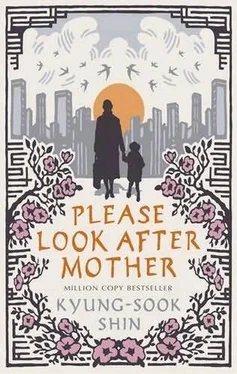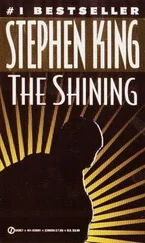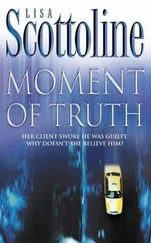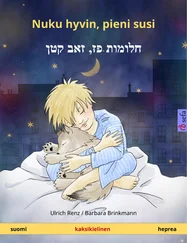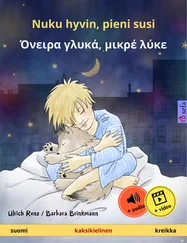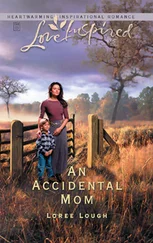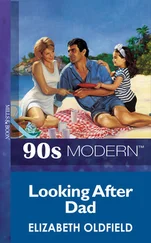Kyung-sook Shin - Please Look After Mom
Здесь есть возможность читать онлайн «Kyung-sook Shin - Please Look After Mom» весь текст электронной книги совершенно бесплатно (целиком полную версию без сокращений). В некоторых случаях можно слушать аудио, скачать через торрент в формате fb2 и присутствует краткое содержание. Жанр: Современная проза, на английском языке. Описание произведения, (предисловие) а так же отзывы посетителей доступны на портале библиотеки ЛибКат.
- Название:Please Look After Mom
- Автор:
- Жанр:
- Год:неизвестен
- ISBN:нет данных
- Рейтинг книги:4.5 / 5. Голосов: 2
-
Избранное:Добавить в избранное
- Отзывы:
-
Ваша оценка:
- 100
- 1
- 2
- 3
- 4
- 5
Please Look After Mom: краткое содержание, описание и аннотация
Предлагаем к чтению аннотацию, описание, краткое содержание или предисловие (зависит от того, что написал сам автор книги «Please Look After Mom»). Если вы не нашли необходимую информацию о книге — напишите в комментариях, мы постараемся отыскать её.
Told through the piercing voices and urgent perspectives of a daughter, son, husband, and mother, Please Look After Mom is at once an authentic picture of contemporary life in Korea and a universal story of family love.
You will never think of your mother the same way again after you read this book.
Please Look After Mom — читать онлайн бесплатно полную книгу (весь текст) целиком
Ниже представлен текст книги, разбитый по страницам. Система сохранения места последней прочитанной страницы, позволяет с удобством читать онлайн бесплатно книгу «Please Look After Mom», без необходимости каждый раз заново искать на чём Вы остановились. Поставьте закладку, и сможете в любой момент перейти на страницу, на которой закончили чтение.
Интервал:
Закладка:
Honey.
Please remember that you were always a source of happiness for me. You’re my fourth child. I never told you this, but, strictly speaking, you’re my fifth child. Before you, there was a child who went to the other world as he was being born. Your aunt delivered the baby, and told me it was a boy, but the baby didn’t cry. He didn’t open his eyes, either. It was a stillbirth. Your aunt said she would hire someone to bury the dead baby, but I told her not to. Your father wasn’t at home then. I lay in my room for four days with the dead baby. It was winter. At night, the falling snow was reflected on the mulberry paper of the window. On the fifth day, I got up and put the dead baby in a clay jar and carried it to the hills and buried him. The person who dug the frozen earth wasn’t your father, but that man. If that baby hadn’t been buried, you would have three older brothers. And then I gave birth to you by myself. Was there a reason for that? No. No. There was no reason. When I said I would have you by myself, your aunt was hurt. I’m only saying this now, but I was more scared of a dead baby coming out than going through childbirth alone. I didn’t want to show that to anyone. If another dead baby came out, I wanted to bury it myself and not come down from the mountain. When I started having labor pains, I didn’t tell your aunt, but brought hot water into my room and seated your sister, who was very young, by my head. I didn’t even scream, because I didn’t want to let anyone know in case a dead baby came out. But then out of me came you, warm and squirmy. When I slapped your bottom before wiping you clean, you burst into tears. Looking at you, your sister laughed. She said, “Baby,” and patted your soft cheek with her palm. Drunk with your presence, I didn’t even feel the pain. Later, I realized that my tongue was covered in blood. That’s how you were born. You were the child that came into this world, the child that reassured me when I was stuck in sorrow and fear that another dead baby would be born.
Honey.
At least for you, I was able to do everything other moms did. I was able to breastfeed you for over eight months, because I had a lot of milk. I was able to send you to a place called kindergarten, which was a first for our family, and for your first shoes I was able to buy sneakers instead of rubber shoes. And, yes, I made your name tag when you went to school. Your name was the first letters I ever wrote. I practiced so much for that. I pinned on your chest a handkerchief and your name tag that I wrote myself, and took you myself to the school. You wonder why that’s a big deal? It was a big deal for me. When Hyong-chol went to elementary school, I didn’t go with him: in case I might have to write something, I made this or that excuse and sent him with your aunt. I can still hear your brother grumbling that everyone else’s mom came but he had to go with his aunt. When your second-eldest brother went to school, I sent him with Hyong-chol. I sent your sister with Hyong-chol, too. For you and only you, I went to town and bought a schoolbag and a frilly dress. I was so happy that I was able to do that. Even though it was as small as a tray, I asked that man to build you a desk. Your sister didn’t have a desk. She still talks about it sometimes, about how her shoulders got broader because she had to do her homework hunched over on the floor. It made me very proud to watch you sit there and study and read. When you were studying to get into college, I even packed you lunch. When you had study sessions at night, I waited for you at school and walked you home. And you made me very happy. You were the best student in our small town.
When you were accepted into a top university in Seoul, and into the pharmacy school at that, your high school hung a congratulatory placard in your honor. Whenever someone said to me, “Your daughter is so smart!” I’m sure my smile stretched up to my ears. You wouldn’t know how proud I was to be your mother when I thought about you. I wasn’t able to do anything for the others, and even though they are also my children, I never felt that way about them. I felt regretful and guilty, even though they were my children. You were the child who freed me from that feeling. Even when you went to college and ran around demonstrating, I didn’t interfere, the way I did with your brothers. I didn’t come to see you when you were on a hunger strike at that famous church they say is in Myongdong. When your face was covered in pimples, maybe because of the tear gas, I just left you alone. I thought, I don’t know exactly what she’s doing, but I’m sure she’s doing it because she can do it. When you and your friends came down to the country and set up evening classes for the community, I cooked for you. Your aunt said you might become a red if I left you alone, but I let you talk and behave freely. I couldn’t do that with your brothers. I tried to persuade them and I scolded them. When your second-eldest brother was beaten by riot policemen, I heated salt and placed it on his back to help him feel better, but I threatened to kill myself if he kept doing it. And all the while, I was scared that your brother would think I was stupid. I know there are things young people have to do when they’re young, but I tried my hardest to stop the others from doing them. I didn’t do that with you. Even though I didn’t know what it was you were fighting to change, I didn’t try to stop you. One year when you were in college-in June, remember-I even went with you to City Hall, following a funeral procession. That was when I was in Seoul because your niece was born.
I have a pretty good memory, don’t I?
It’s not a question of memory, though, because it was an unforgettable day. For me, it was that kind of day. As you were leaving the house at dawn, you saw me and asked, “Mom, do you want to come?”
“Where?”
“Where your second son went to school.”
“Why? It’s not even your school.”
“There’s a funeral, Mom.”
“Well… why would I go there?”
You stared at me and were about to close the door behind you, but you came back in. I was folding your newborn niece’s diapers, and you yanked them out of my hands. “Come with me!”
“It’s almost time for breakfast. I have to make seaweed soup for your sister-in-law.”
“Will she die if she doesn’t eat seaweed soup for one day?” you asked harshly, uncharacteristically, and forced me to change my clothes. “I just want to go with you, Mom. Come on!”
I liked those words. I still remember the tone of your voice as you, a college student, told me, who had never gone near a school, to come to school with you because “I just want to go with you, Mom.”
That was the first time I saw so many people gathered like that. What was the name of that young man, who’d died after being hit by tear-gas pellets, who was only twenty years old? I asked you many times and you told me many times, but it’s hard to remember. Who was that young man who caused so many people to gather? How could there be so many people? I followed you in the funeral procession to City Hall, and I looked for you and grabbed your hand again and again, afraid I might lose you. You told me, “Mom! If we lose sight of each other, don’t walk around. Just stand still. Then we’ll be able to find each other.”
I don’t know why I didn’t remember that till now. I should have remembered it when I couldn’t get on the subway car with your father in Seoul Station.
Honey, you gave me so many good memories like that. The songs you sang as you walked along holding my hand, the sound of all those people shouting the same chant-I couldn’t understand it or follow it, but it was the first time I went to a plaza. I was proud of you for taking me there. You didn’t seem like just my daughter. You looked very different from how you were at home-you were like a fierce falcon. I felt for the first time how resolute your lips were, and how firm your voice was. My love, my daughter. Every time I went to Seoul after that, you took me out, apart from the rest of the family, to the theater or to the royal tombs. You took me to a bookstore that sold music and put headphones over my ears. I learned through you that there was a place like Kwanghwamun in this Seoul, that there was something called City Hall Plaza, that there were movies and music in this world. I thought you would live a life different from the others. Since you were the only child who was free from poverty, all I wanted was for you to be free from everything. And with that freedom, you often showed me another world, so I wanted you to be even freer. I wanted you to be so free that you would live your life for other people.
Читать дальшеИнтервал:
Закладка:
Похожие книги на «Please Look After Mom»
Представляем Вашему вниманию похожие книги на «Please Look After Mom» списком для выбора. Мы отобрали схожую по названию и смыслу литературу в надежде предоставить читателям больше вариантов отыскать новые, интересные, ещё непрочитанные произведения.
Обсуждение, отзывы о книге «Please Look After Mom» и просто собственные мнения читателей. Оставьте ваши комментарии, напишите, что Вы думаете о произведении, его смысле или главных героях. Укажите что конкретно понравилось, а что нет, и почему Вы так считаете.
